 Why does William & Mary Campus Recreation feel it is important to proactively address hazing prevention?
Why does William & Mary Campus Recreation feel it is important to proactively address hazing prevention?
Through our work with Hazing Prevention Network and attending the Hazing Prevention Institute with an interdisciplinary team, we realized that hazing is just as prevalent in club sports as it is in fraternities and sororities. At William & Mary, we believe that all that come here belong here, and they do not have to do anything to prove that to any organization.
What does W&M do to address hazing?
We use Prevent.Zone’s “Hazing Prevention: It’s Everyone’s Responsibility™” (Hazing Prevention 101) online program because they do a great job of talking about what hazing looks like within athletics and club sports with their athletics module. We have every sport club athlete (which is about 1,700 for us) take the intro to hazing and the athletic module.
Did you have a hazing issue that prompted your efforts or was it proactive?
We did not have a major incident, however between 2008 and 2010 two high profile student groups were found in violation of hazing which prompted our campus director of fraternity and sorority life at the time to bring a group across the campus together to work on hazing prevention.
What does student feedback look like for your hazing prevention efforts?
We get the full gamut of responses from negative feedback like “it is not hazing it they ‘want’ to do it,” “no one got physically hurt,” “they need to earn their spot,” “we did it an no one died,” to positive comments such as “thank you,” “we didn’t realize that was hazing,” “we didn’t think about the hidden harms” and “can you help us plan something that is challenging but not hazing.” It is important to listen to the feedback so you can adjust your programming to meet students’ needs.
What advice can you share with other campus recreation departments?
- The first thing you need to do is get a little idea of what is the general thought around hazing on your campus.
- Make sure you have a common message—same words for all groups—because many students do multiple activities and if they hear different things, it confuses them.
- Do not be surprised if you see more hazing cases reported after you start your efforts. That does not mean more people are hazing it means more people understand it better and they are reporting it.
- Make your reporting method confidential if that is what the reporter needs and also make it very easy to find and fill out.
- Be careful making a list of what is hazing and what is not because they will find a loophole. It is better to give a definition of hazing.
- I think an interdisciplinary approach is the best way to start addressing hazing on campus.
- Especially in the club sport world, team members must do so much set up and take down for practices and games it seems easier to give the “rookies” the worst jobs. It is better to have a sign up and let them sign up for what they want to do.
Can you expand on your thoughts?
Hazing prevention is important and most in campus recreation have wellness or wellbeing in your mission statement. This is part of our job to stop hazing in our programs, and you may not know it, but it is happening in most of your programs.
Learn about hazing yourself. Read about it. Attend a Hazing Prevention institute to learn about it from the experts. Hazing is not just physical abuse; it is also mental abuse.
The thing that got me most involved and passionate about hazing prevention was listening to Dr. Travis Apgar at RPI (a fellow HPN board member) tell his story about the hidden harms of hazing. As a varsity athlete myself, I believe what we thought we were doing as initiation to myself and me to others was a form of the hidden hazing. I know my teammates and I would never have done anything to harm each other because we were teammates. Although I now know we do not know what we do not know.
Students are coming to campus with so many things in their past and what may seem like a harmless activity can really trigger them into a very bad space.
Make sure what training you do or have your teams do uses the correct terminology for campus recreation and sport clubs. I know the Hazing Prevention Network’s institute does a good job of including different terminology to let you know it is about you. If our participants only hear words that refer to fraternity and sorority initiation, they will not think you are talking about them so they must not be hazing.
Would you encourage campus recreation to work together with other parts of campus to address hazing? Why?
Yes! It helps to address the problem collectively across campus. Also, it often helps to share the costs.
Our students in campus recreation are often in other activities too. Even if no one else at your university is willing to address the issue, you can still make a difference with those in your program.
Know that this is not just a club sport issue—there is hazing in intramurals, fitness and wellness (mostly within the instructors) and in student staffs (with new people). We do know from the data that hazing is in the sport club program more than any other campus recreation program.
A great partner for campus recreation is often athletics. We are seeing more and more college teams getting suspended and people losing their jobs in athletics from hazing—more than in the recent past.
Is there anything you wish you had known in the beginning of your efforts?
I wish I had known about all the tools out there to support our efforts with hazing prevention in campus recreation. It is also important to know this is not a one-year effort or a one speaker effort. There needs to be dosing throughout the year to keep it on their mind and help new members understand they do not have to put up with anything that is not “part of the sport.”
Any last thoughts?
I have served on Hazing Prevention Networks’s board of directors for about 12 years and the work is worth it. I have always said, and will continue to say, my hope is that someday we put ourselves out of business.

Learn more about:
- Hazing Prevention Institute* (in-person, two day institute)
- Hazing Prevention 101 online through Prevent.Zone
- Hazing Prevention Advocate Certification* online through Prevent.Zone
- In-person Student Workshop (comes to your campus/organization)
*Hazing Prevention Network has been approved by the Higher Education Consortium for Student Affairs Certification to provide CE credit for Certified Student Affairs Educators (CSAEd™). Programs that qualify for CE credit in this program are clearly identified. Hazing Prevention Network is solely responsible for all aspects of this program.



